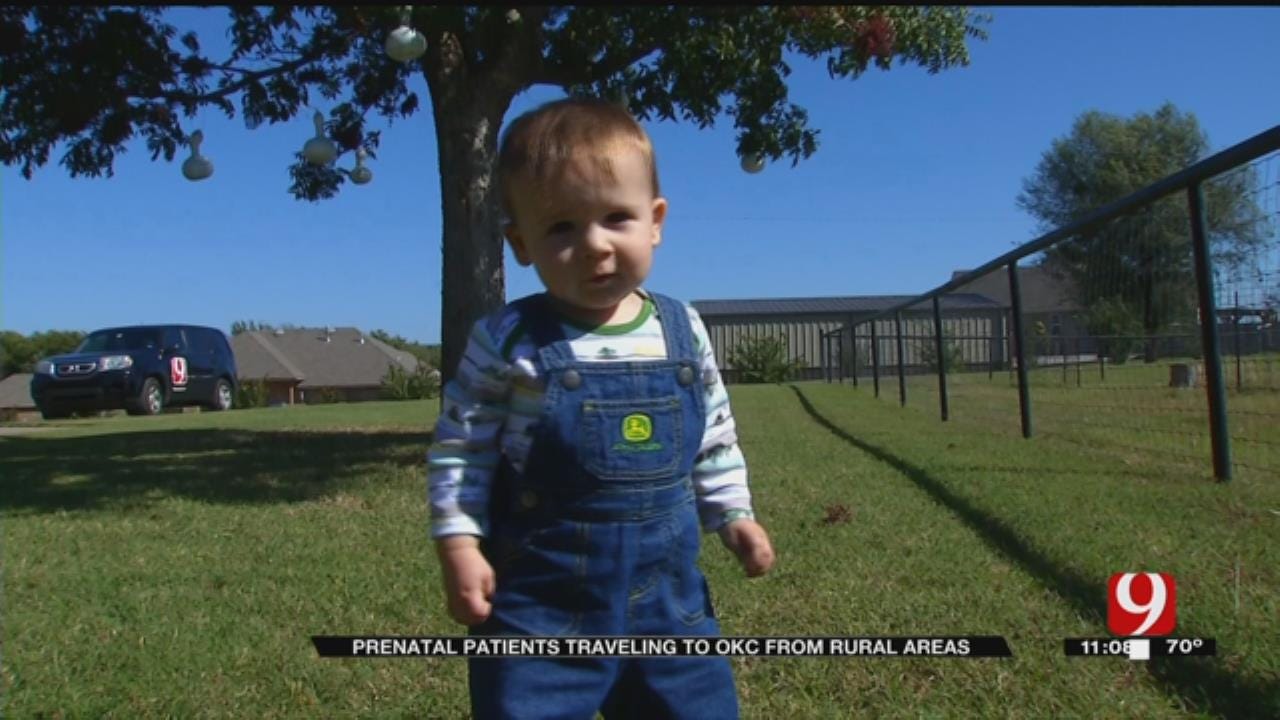Pregnant Women In Rural Oklahoma Forced To Travel For Care
<p>Federal and state cuts to health care in recent years have resulted in the closure of rural hospitals across our state. Now, OU Medical Center is seeing a spike in women traveling long distances to get prenatal care.</p>Thursday, October 12th 2017, 10:50 pm
Federal and state cuts to health care in recent years have resulted in the closure of rural hospitals across our state. Now, OU Medical Center is seeing a spike in women traveling long distances to get prenatal care.
Lori Marshall's now one-year-old son Rhett is learning all about farm life firsthand. His parents left the city for their Blanchard ranch about five years ago, and since then, Lori's only local medical care has been from a nurse practitioner.
“They do great jobs,” commends OU Medical Center CEO Chuck Spicer. “We just don’t have enough doctors in those areas. We don’t have enough hospitals.”
When Lori got pregnant, the closest hospital equipped to handle her health risks was OU Children's.
She says, “It started out where we would go every month, then it gets down to every two weeks, then every week.”
All told, Lori made the trip nearly 40 times before and after Rhett's birth, carefully planning appointments around rush hour through the city. Now, the baby sees a doctor in Norman, and their story is not uncommon.
“I would say a majority of the people (in Blanchard) leave town for medical care.”
Spicer says his hospital is filled with patients from rural areas whose doctors and hospitals have closed their doors due to cuts from the state and Medicaid. Furthermore, he adds that because of a lack of local doctors, some women are not seeking out care at all until late in their pregnancies, which causes even more potential health concerns.
“Mom is out of her city,” he says, "out of her town. Her family is away from them, and we have a very expensive Medicaid case and a baby that may require a lifelong amount of care.”
OU Med and other city hospitals are working to combat the doctor shortage by opening auxiliary offices in rural areas, but without serious investment, specialized care will remain limited to the metro area.
More Like This
October 12th, 2017
November 13th, 2024
October 28th, 2024
Top Headlines
March 14th, 2025
March 14th, 2025
March 13th, 2025










